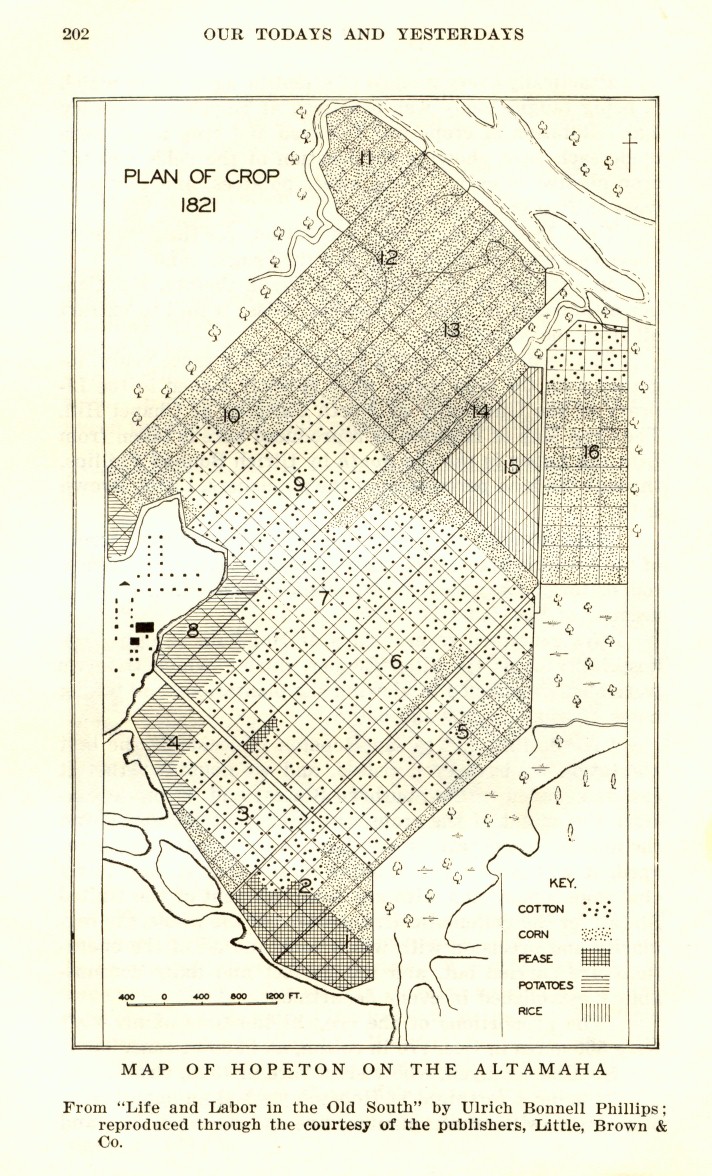 James Hamilton Couper.
James Hamilton Couper.
 Hopeton Plantation. James Hamilton Couper (1794-1866) was the son of John and Rebecca (Maxwell) Couper of St. Simon's Island.
He grew up on his father's plantation, Cannon's Point, but when he returned from Yale
University in 1814, he managed the Hopeton Plantation, which he later owned. He was married
to Caroline Georgia Wylly (1811-1897) and had a large family of five sons and two daughters.
Hopeton Plantation Plantation was located on U.S. 17 just north of junction with
Ga. 99, in Glynn County. It dominated the Altamaha plantations, even Major Pierce Butler's.
He took a scientific approach to planting. In 1859, he was asked to divide the Butler slaves prior
to the Savannah auction of Pierce Butler's share. He died in 1866.
Hopeton Plantation. James Hamilton Couper (1794-1866) was the son of John and Rebecca (Maxwell) Couper of St. Simon's Island.
He grew up on his father's plantation, Cannon's Point, but when he returned from Yale
University in 1814, he managed the Hopeton Plantation, which he later owned. He was married
to Caroline Georgia Wylly (1811-1897) and had a large family of five sons and two daughters.
Hopeton Plantation Plantation was located on U.S. 17 just north of junction with
Ga. 99, in Glynn County. It dominated the Altamaha plantations, even Major Pierce Butler's.
He took a scientific approach to planting. In 1859, he was asked to divide the Butler slaves prior
to the Savannah auction of Pierce Butler's share. He died in 1866.
James Hamilton Couper was born on March 4, 1794 in Sunbury, Georgia, the son of a Scottish emigrant. Sunbury was located in Liberty County, on the coast, in a little pre-revolutionary war town. It was thought of as a "resort" and many New Englanders spent the winter here. Also, nearby planters, went to the resort during the summer to avoid mosquitoes and yellow fever. About 1810, a hurricane came and wiped out the town. The spot upon which the town stood, and the site of the old wharf, has been privately owned for many years. His father owned land on St. Simons Island in Glynn County, forming a plantation partnership with a friend, James Hamilton where they planted the long-fibered sea island cotton. In 1804 Couper's father bought another tract of land on the Altamaha River near Brunswick. Couper grew up the heir of a wealthy and influential family and was sent to Yale College where he graduated in 1814 at the age of 20. He traveled to Holland to study methods of water control for possible use on the Georgia plantations and returned home to manage the Altamaha River plantation known as "Hopeton". James Hamilton Couper died in 1866, and was known as a southern agriculturist who applied scientific methods.


